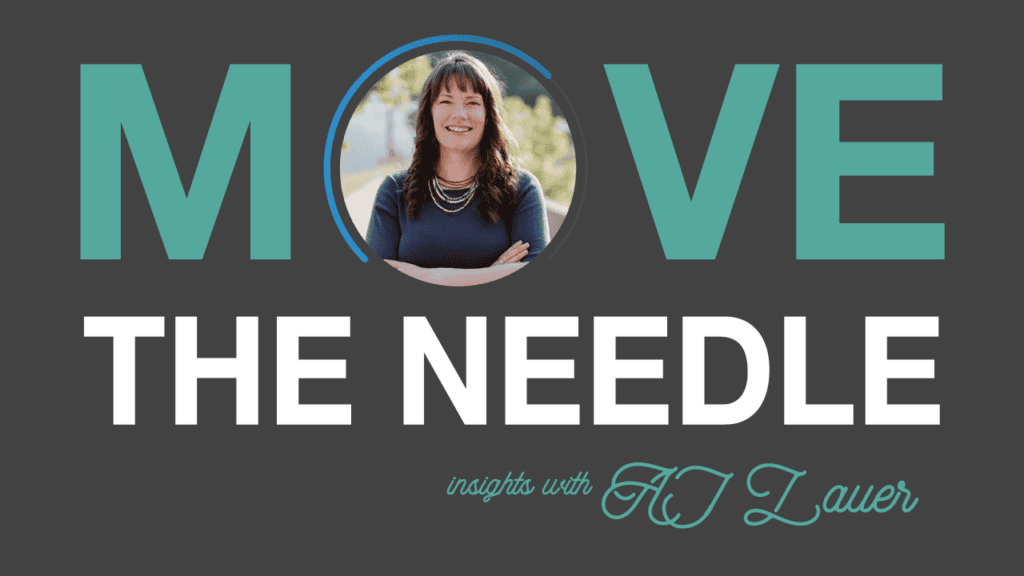During our recent conversation with AJ Lauer, CEO and Owner of Thriving Ibis Leadership Solutions, the Move the Needle team gained a comprehensive understanding of allyship in High-Performance Computing (HPC). With an EdD in Interdisciplinary Leadership Studies (where she wrote her dissertation about the workplace climate in HPC), AJ has dedicated her career to fostering equitable environments from her work in universities, her time at the National Center for Atmospheric Research, and now into running her own business. AJ’s insights offer valuable guidance on how individuals can become effective allies, support underrepresented groups and drive meaningful change.
Interview by Cristin Merrit, CMO of Alces Flight with editorial support by Dominik Wojtak
The Crucial Role of Allies
Allies play a key role in advancing equity, but what does it mean to be one? Individuals from minority groups often bear the burden of advocating for themselves, which can be exhausting and isolating. Effective allies help to alleviate this pressure by amplifying the voices of those who are marginalised, helping to “move the needle” toward greater inclusion. These voices are crucial for bridging gaps to make a difference and continue the progress.
When seeking to become an ally in the field it is important to know that there are many ways you can help to lift up those around you. This can start by doing a bit of research into the effective means to become an ally. AJ recommends:
- Allyship (& Accomplice): The what, the why, and the how
- Microaffirmations: 13 ways to be an ally every day
- And if you want more… AJ has kindly come up with an allyship book list
Disrupting Exclusionary Patterns
Once allies have a foundational understanding, they can start identifying and disrupting patterns of exclusion in their organisations. AJ provided us two practical examples:
- “Housekeeping Tasks”: Minorities are often assigned “housekeeping” tasks by their institutions, such as taking notes, arranging coffee and tea, organising meetings or cleaning up after an event. Allies in leadership roles can step in to take on these roles, allowing minority voices to be heard during meetings.
- Credit for Ideas: AJ highlighted another common issue often faced by minorities not receiving credit for their ideas and contributions. Allies should observe the dynamics in meetings and note whose ideas get interrupted and whose are acknowledged, giving credit to the individual and distributing a bias pattern.
In a story shared in her exclusive interview, AJ spoke about a client in the field of physics who faced burnout due to being overburdened with tasks beyond her role simply because she was a minority. Key in her tale was that these new tasks had nothing to do with her physics specialisation, they were simply allocated to her because of her gender. Such scenarios are more common than individuals may think, which is why foundation actions such as mixing up task ownership and leading through observation can help to shift culture dynamics and foster more shared responsibility.
Gender Specific Groups
Gender-specific groups such as Women in HPC, provide crucial support networks. Offering safe spaces for individuals from minority backgrounds to connect, share experiences and empower one another. These environments are essential for those who might feel isolated or marginalised in their professional settings. By coming together, members can build a sense of community and belonging. Giving an opportunity to address unique challenges in male-dominated fields, members can share strategies for overcoming obstacles, share opportunities and advocate for systemic change. While there is a place for majority groups, their focus should lie on learning how to be better allies and supporting inclusive environments.
Being an ally involves a lot of listening and willingness to make and learn from mistakes. AJ shares the WAIT concept, which stands for: “Why am I talking?” She suggests allies to consider their motivations and to prioritise listening over speaking. She recognises that mistakes are inevitable as diversity and inclusion evolves, but those mistakes offer valuable learning opportunities to improve allyship in the field of High-Performance Computing.
Watch the Full Interview!
You can now dive into the full interview with AJ Lauer and gain deeper understanding into her strategies for effective allyship.
Move the Needle Project
The “Move the Needle” project by Alces Flight and Women in HPC focuses on commitment that teams and individuals take to drive positive change. Beginning in January 2024, individuals in the HPC field can commit to one to three actions to move the needle toward greater inclusion.
Thriving Ibis Leadership Solutions
At Thriving Ibis Leadership Solutions, the mission is to enhance the professional lives of scientists and technologists, helping them not just survive but thrive in their roles. The organisation provides leadership development services that build skills, networks, and mindsets necessary for success in science and technology fields.


